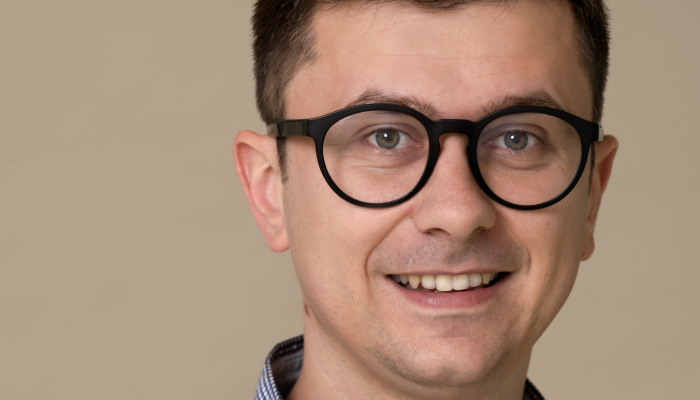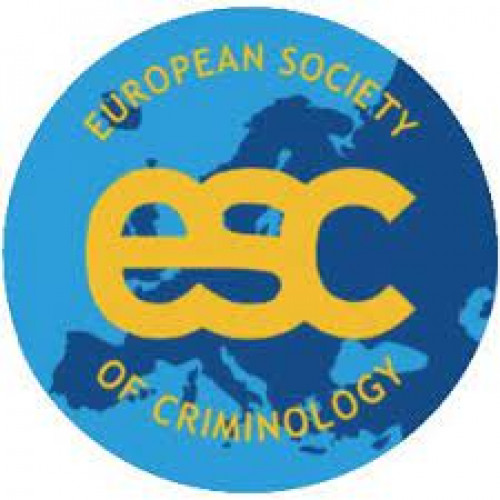2025 At-large Board member: candidate Mirza Buljubašić

What does justice look like in the wake of mass atrocity violence? That question has shaped my work for over a decade – not in theory, but in prisons, courtrooms, classrooms, and in the spaces where laws are applied, harms are remembered, and justice remains deeply contested.
I am a criminologist based in Sarajevo, Bosnia and Herzegovina, where I teach and research political violence, punishment, and the long-term social impacts of conflict. In Southeastern Europe, these questions are not abstract – they shape the legal, political, and emotional fabric of everyday life. I believe that perspectives from such contexts are not peripheral to European Criminology – they are essential to understanding how harm, justice, and responsibility operate across our continent.
My work spans academic research, public policy, and cross-sector collaboration. I have worked with the Council of Europe on terrorism-related sanctions, with the Radicalisation Awareness Network on violent extremism in the Balkans, and with the Atlantic Initiative on the legal and societal challenges of terrorism. I was also engaged in the regional transitional justice initiative RECOM, and contributed to the Justice360 and Transitional Punishment: Moderating Legacies of Mass Atrocities? projects, both of which explore how societies respond to mass violence and its aftermath. My research, published by Oxford University Press, Brill, and Taylor & Francis, focuses, among others, on atrocity crimes, prison rehabilitation, and the legitimacy of justice in Southeastern Europe.
Within the European Society of Criminology, I have participated in working groups, contributed to conference debates, and stood as a candidate in 2023 and 2024. These experiences have deepened my respect for ESC’s evolving role. From expanding fellowships to colleagues at the edges of Europe, to creating inclusive working groups, and organizing its first conference outside the European Union in Sarajevo, the ESC has taken significant steps toward greater inclusion. I view my candidacy as a contribution to this ongoing process: building on past progress while helping the Society remain open, responsive, and forward-looking.
If elected to the Board, I will focus on three core areas:
- Equity in participation: Institutional support for ESC participation remains uneven. In my own faculty, for instance, travel support to attend ESC conferences only recently became available and is capped at €500 – an amount that often does not cover the full cost of registration, travel, and accommodation. Many colleagues across Europe face similar constraints, whether due to economic conditions or institutional limitations. I will advocate for differentiated membership and participation fees, as well as expanded support mechanisms for early-career researchers, especially PhD students and precariously employed scholars.
- Shared teaching infrastructure: I propose the creation of an ESC Classroom Exchange – a platform for members to voluntarily share syllabi, reading lists, assessments, and recorded lectures. In Bosnia and Herzegovina – as in many contexts – access to updated Criminology teaching resources from across Europe is limited. A collaborative, open-access repository would strengthen pedagogy, support co-teaching opportunities, and foster meaningful exchange between institutions with different capacities.
- Broader research impact and engagement: ESC’s research networks should be more deliberately connected to wider societal contexts. I will support initiatives that link scholars not only to law enforcement or judicial institutions, but also to educators, social workers, civil society actors, mental health professionals, journalists, and others contributing to a whole-of-society approach to justice, security, and prevention. The ESC is uniquely placed to bridge academic insight and public practice – making research not only more visible, but more impactful and relevant to broader audiences.
Although my work is based in Sarajevo, the questions I address – justice after violence, legitimacy of punishment, and structural barriers in academia – resonate far beyond one location. I have seen how critical, field-shaping scholarship can emerge from institutions with very limited resources. What is often missing is not the quality of their ideas, but the recognition and access needed to shape the wider field. ESC can help close that gap – not through symbolic gestures alone, but by embedding structural solutions that last.
When we share research, teaching tools, and institutional knowledge across borders, we do more than advance scholarship – we build fairness, inclusion, and solidarity into the foundation of European Criminology.
Criminology’s role is not only to describe exclusion – but to help dismantle it. Thoughtfully. Collectively. And with clarity of purpose.
Thank you for your support.
